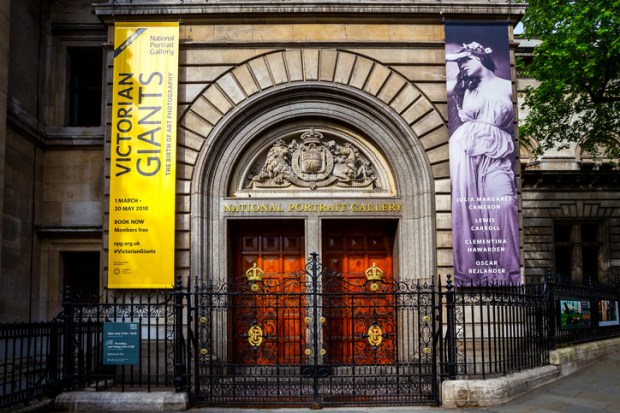University vice-chancellors will find some uncomfortable reading in their New Year in-tray today. Last month the chairman of accountancy giant PwC pointed out that more and more middle-class teenagers are walking away from old-style university studies and embracing degree apprenticeships and other forms of on-the-job learning. Already the number of those taking up degree apprenticeship is nearing 10 per cent of university admissions, and this figure is still set to grow.
Although many such apprenticeships boast an element of university involvement and some even a qualification called a ‘degree’, their emphasis is quite different. Learning happens predominantly by working; the academy is not the centre of the process, but merely a cog in the wheel.
The implications for many universities are clear, and at least at first sight uncomfortable. Instead of acting as independent organisations with their own priorities, supplying graduates to a world supposedly eager to snap them up, they will increasingly be playing second fiddle, supplying services to other, often larger, organisations at the latter’s dictation.
Uncomfortable for them, certainly. But this development is not surprising; nor, to anyone looking closely at it, should it be very worrying.
One reason for this shift away from traditional degrees is expense. An old-style degree certificate now costs a student (or, depending on its solvency, the Bank of Mum and Dad) something like £28,000, over and above living expenses incurred while living away from home. Furthermore, the justification traditionally provided for gaining a degree (that those costs were almost certainly bound to be recouped through a general graduate earnings premium) is now increasingly doubtful, save in a few exceptional cases – think vocational degrees in, say, law or medicine.
We should welcome the likely decline of the three-year full-time university degree in its present form
Meanwhile a degree apprenticeship, by contrast, is essentially free. The government pays roughly two-thirds, and the employer the rest; furthermore, the student receives a modest salary while working. For many students and their families this is a no-brainer.
Another reason is that university degrees and student life have changed. True, some elite institutions or departments retain the idea of study and speculation for its own sake; but many others have consciously moved away.
For many colleges, chasing student numbers and high ratings in the National Student Survey in practice means drearily directed learning and support verging on the dishonest (for example, hints as to the points at issue in exam questions, supposedly to enable students to reach their ‘full potential’). Add to this, of course, protection from teaching seen as discomforting, despite pious government backing for free speech.
There is also a managerialist determination to reduce actual contact time with students, and to put more teaching out to underpaid and not enormously competent tutors and graduate students. And this is without the process, inspired by Covid but outlasting it, of putting increasing amounts of teaching online. This is not university education as most people imagine it. As the wry joke has it, much of UK higher education is now best described as the most expensive streaming service in the world.
Some of the blame for this educational debacle admittedly lies with government. It was, after all, minister for universities David Willetts who in 2012 disingenuously defended his setting of some of the highest tuition charges in the non-American world by telling us to look at university fees not as a contribution to an organisation dedicated to the pursuit of knowledge but as the purchase of a financial product, namely an investment in earning power. But most of it, one suspects, lies with the universities themselves. They have not only pushed mediocre courses with the promise of a good result at the end, but also chosen to see themselves more as big commercial corporations with research and a student experience to market, and management salaries to match.
Whoever is to blame, there are a number of reasons why we should welcome the likely decline of the three-year full-time university degree in its present form.
For one thing, many courses essential to the modern world are not suited to the lectures, tutorials and essay system originally copied from Oxbridge. Philosophy or medieval history are one thing: journalism, accountancy practice, or detailed computer coding are different. Trying to shoehorn the latter into a pattern designed for the former is a pretty terrible idea.
Secondly, leaving aside their self-serving nature, we need to be careful of suggestions by universities and bodies such as Universities UK that our future knowledge economy needs ever more graduates. There is admittedly a grain of truth there: intellectual or technical skills are more vital than ever, and those without them increasingly disadvantaged. But these are not the same as degrees.
As for many degrees, there is little reason to think them best gained by the means traditionally used by universities. Too is it wrong to see a three-year graduate as being more worthy of a degree than someone with work experience supplemented by some theoretical training. What is needed, in other words, is not so much graduates with degree certificates, as people with knowledge, familiarity and hands-on expertise.
Thirdly, recognition that some skills are not degree skills in the traditional sense is an excellent opportunity for traditional universities that do want to concentrate on the traditional three-year residential course to do exactly that. It is also good news for students interested in knowledge for its own sake who may wish to gravitate to them. This is not to say that these institutions should be regarded as part of an elite, or that studying there should lead to any social or financial advantage.
Indeed the greatest advantage of a development like this is social, in that traditional university education may at last cease to be seen as a middle-class rite of passage, or as a passport to a well-paid job. The sooner this happens, I suggest (and I am a university teacher), the better for all of us.
Got something to add? Join the discussion and comment below.
Get 10 issues for just $10
Subscribe to The Spectator Australia today for the next 10 magazine issues, plus full online access, for just $10.



















Comments
Don't miss out
Join the conversation with other Spectator Australia readers. Subscribe to leave a comment.
SUBSCRIBEAlready a subscriber? Log in